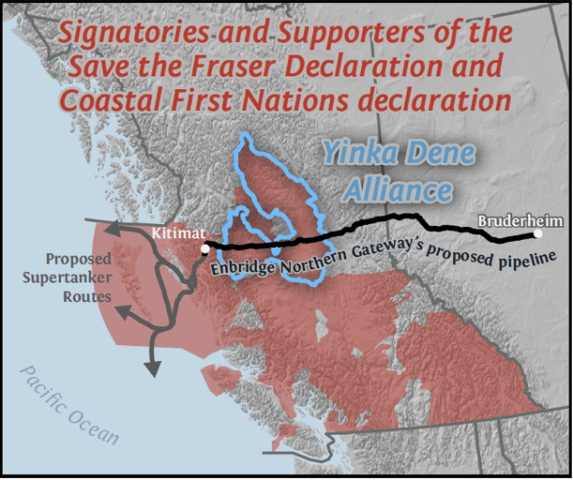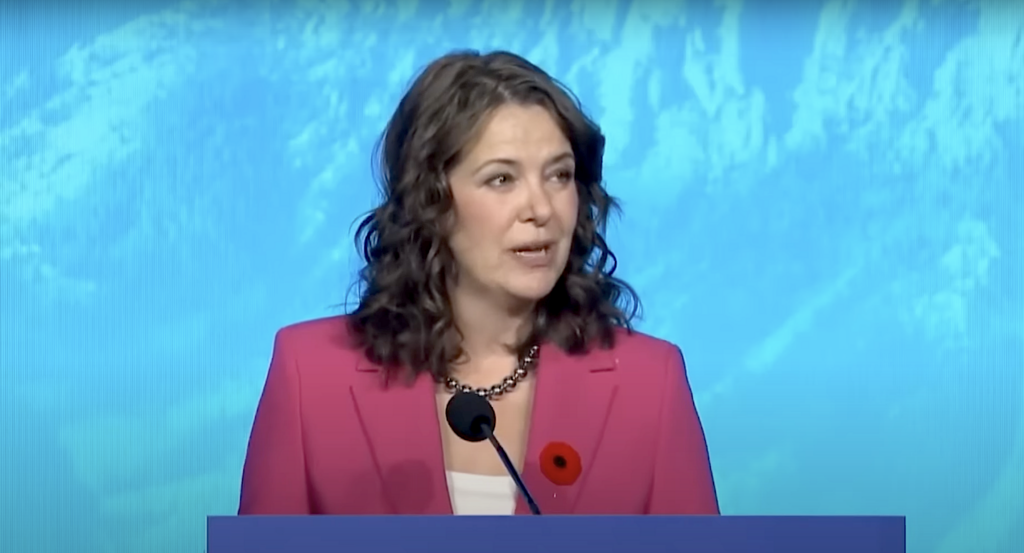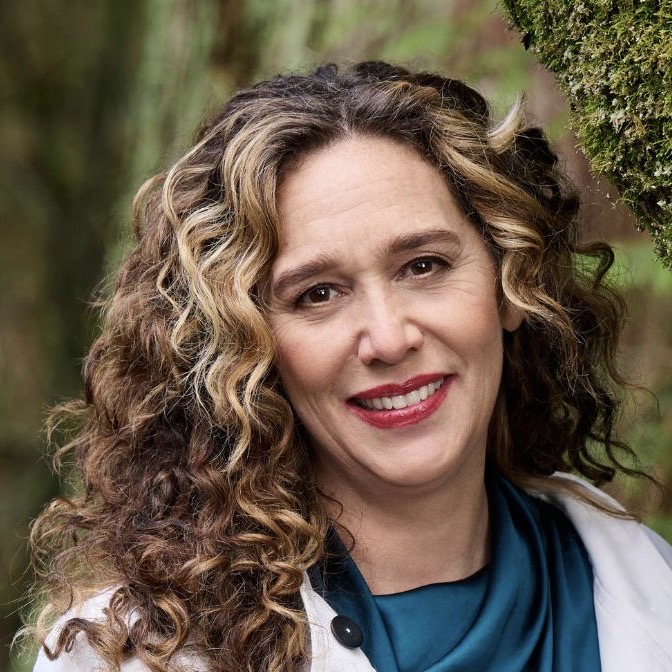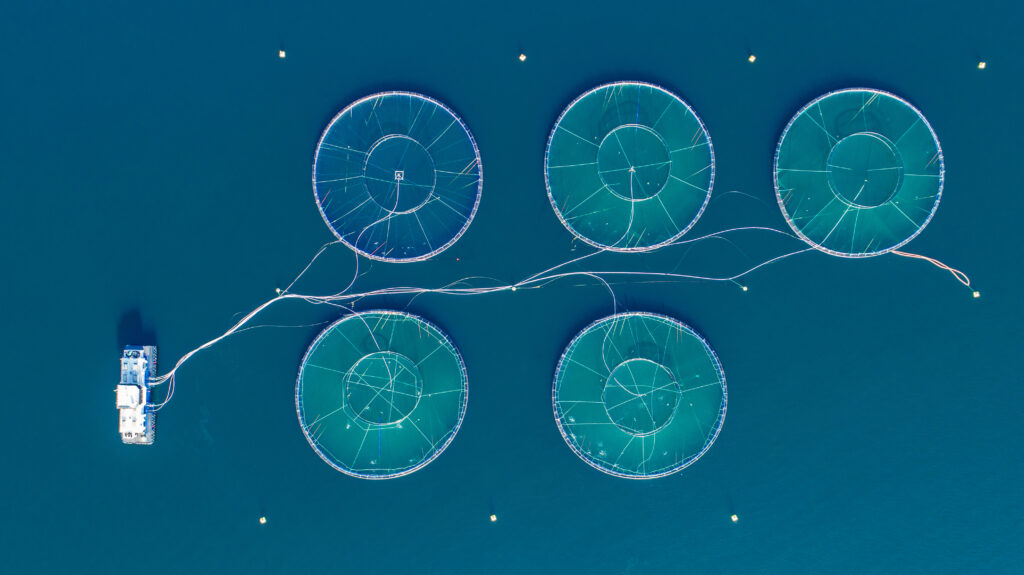The proposed Enbridge Northern Gateway Pipeline spans a massive stretch of provincial territory from Edmonton, Alberta to Kitimat, B.C. Over 50 percent of the planned pipeline and tanker routes snake through First Nations territory, which prohibits such development according to their traditional laws.
“With over 100 pipeline spills and accidents recorded in Canada over the past two years there is only one thing to say about pipelines; they will spill.” These words, from Dene National Chief Bill Erasmus, marked the passing of a resolution, unanimously signed by 35 Chiefs of Denendeh, to oppose the pipeline’s construction.
The Yinka Dene Alliance expressed in May that, under no circumstance, were they interested in negotiating with Enbridge.
Now, this powerful front of aboriginal nations are demonstrating their solidarity with the Yinka Dene Alliance. “These Nations now have the support of Dene from northern Alberta to the Arctic coast,” says Erasmus.
The Dene National Assembly solidified their support at their 41st Annual Assembly held in Fort Providence, Denendeh in the Northwest Territories. The Enbridge project “is also a direct concern for members of the Dene Nation and the communities of the Denendeh, the Northwest Territories, who are feeling the effects of tar sands expansion,” the Dene said in a press release.
The $5.5 billion Northern Gateway project would create a grand thoroughfare for the tar sands, extending its transport capacities by carrying a projected average of 525,000 barrels of petroleum per day. Opposed First Nations insist that the proposal is an affront to their territorial and social sovereignty.
“We know this pipeline will enable further development of Alberta’s destructive tar sands projects, which are contaminating the waters of Denendeh, and which are a growing source of greenhouse gas pollution responsible for climate changes that are impacting our communities, cultures, and ways of life,” Erasmus said. “We are also concerned about the potential for a spill from this pipeline, which would run through the headwaters of the Mackenzie River watershed.”
These First Nations groups are no strangers to the inherent threats posed by pipeline construction, especially where relations with the oil industry are already strained. In May, Dene hunters discovered a massive Enbridge spill north of Fort Simpson, N.W.T.
“We are currently experiencing the impacts of an oil spill from Enbridge’s Norman Wells pipeline in the Deh Cho region,” said Erasmus, adding, “the company failed to detect this estimated 63,000 gallon spill.”
Enbridge states that the company has “a long history of working with Aboriginal groups” and “is committed to working with First Nations and Métis groups along the pipeline route to create meaningful economic opportunities and to incorporate traditional knowledge in the planning and operations of the project.”
“A measure of our success will be our ability to accomplish these goals.”
Despite Enbridge’s attempts to rally First Nations support, there remains an irreconcilable gap between industrial and aboriginal ‘goals.’ Enbridge can try to dress up the Northern Gateway project as an “Aboriginal Partnership,” but as the Dene Nations have demonstrated with this resolution, it is nothing of the kind.
Image Credit: Andrew Frank
Subscribe to our newsletter
Stay up to date with DeSmog news and alerts







